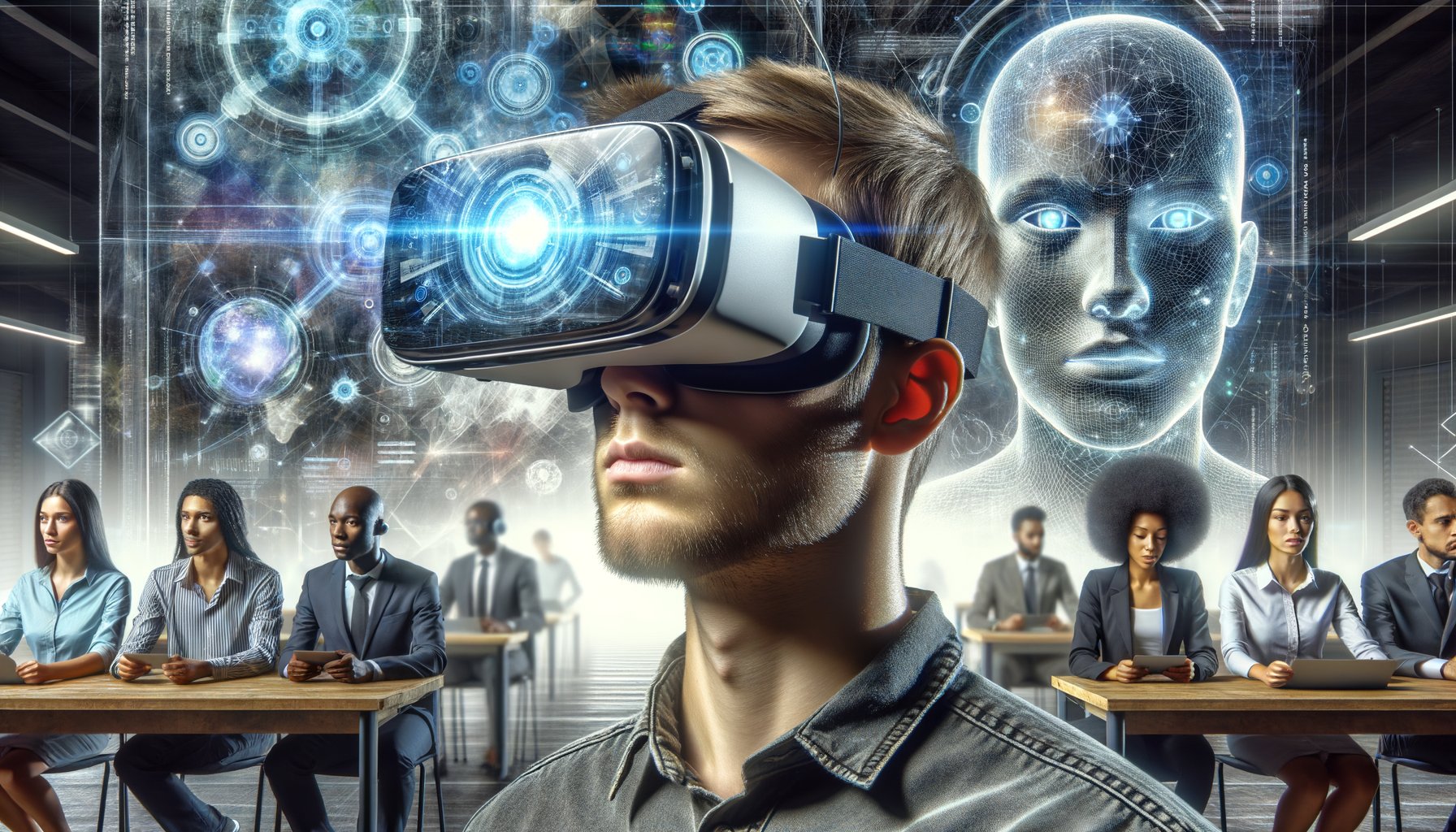Physical Address
304 North Cardinal St.
Dorchester Center, MA 02124
Physical Address
304 North Cardinal St.
Dorchester Center, MA 02124

Virtual Reality (VR) has been a concept that has fascinated and intrigued us for decades, but only in recent years have we seen significant strides in its development and application. From gaming to healthcare, VR is gradually transforming the way we interact with digital technology, providing immersive experiences unlike anything we’ve seen before.
Before delving into the rise of virtual reality, it’s important to understand what it entails. VR is a simulated experience that can be similar or completely different from the real world. It involves the use of computer technology to create a simulated environment that users can interact with in a seemingly real or physical way.
The primary distinguishing feature of VR is its ability to allow direct interaction between users and their environment. This interaction is achieved through multiple sensory feedbacks such as sight, touch, hearing, and even smell in some advanced systems.
The concept of virtual reality isn’t new; it dates back to the 1960s when Ivan Sutherland developed the first head-mounted display system for immersive simulation. However, it wasn’t until the 21st century that VR started gaining traction with advancements in technology and computing power.
In recent years, we’ve witnessed an unprecedented surge in interest and development in VR technologies. Major tech companies like Google, Facebook (Meta), Sony and Microsoft have invested heavily in VR research and development leading to products like Oculus Rift, HTC Vive, PlayStation VR among others.
Today’s applications of VR extend beyond gaming – its initial target market. In education, teachers are using VR to create immersive learning environments where students can explore historical sites or conduct scientific experiments virtually. The healthcare sector is using VR for pain management, rehabilitation, and psychological therapy.
In real estate, potential homebuyers can take virtual tours of properties from the comfort of their homes. The entertainment industry isn’t left out either; filmmakers are exploring VR’s potential to provide immersive cinematic experiences.
As we look towards the future, it’s clear that VR has immense potential. Here’s what to expect:
With advancements in technology, we can expect even more immersive VR experiences in the future. This could involve improved visual fidelity, better motion tracking, and possibly even haptic feedback systems that allow users to ‘feel’ virtual objects.
As VR technology becomes more affordable and accessible, it’s likely that we’ll see a surge in its adoption across various industries. Businesses will increasingly turn to VR for training purposes, while consumers will use it for entertainment and social interaction.
The rise of virtual reality will undoubtedly have a significant societal impact. It could change how we work, learn, communicate and entertain ourselves. While these changes present exciting possibilities, they also raise important questions about privacy and mental health implications which need addressing as the technology evolves.
The rise of virtual reality signifies a new era in digital technology – one where our interactions with digital content are not limited by screens or physical boundaries. As this technology continues to evolve and permeate various aspects of our lives, it’s crucial that we stay informed about its developments and potential implications. After all, the best way to prepare for the future is to understand what’s coming.